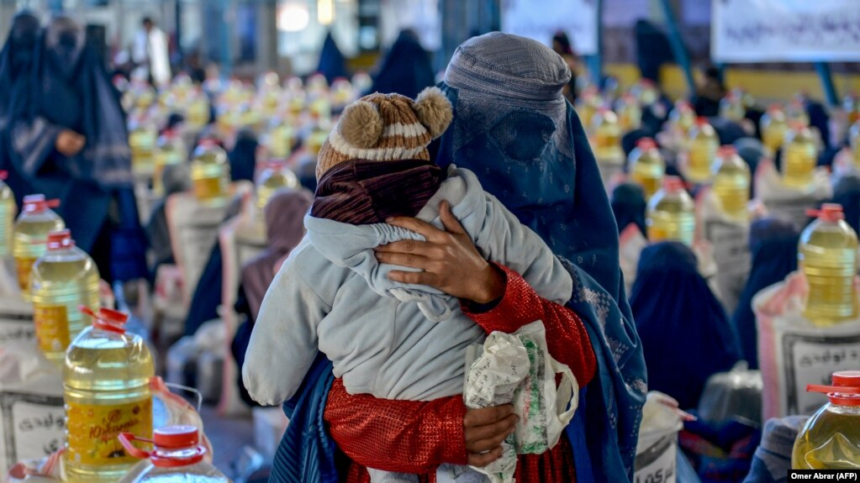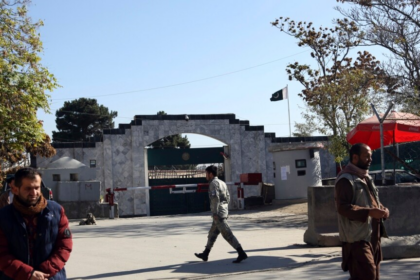RASC News Agency: The United Nations Office for the Coordination of Humanitarian Affairs (OCHA) has issued a stark warning, stating that the suspension of United States funding has severely disrupted humanitarian efforts in Afghanistan, where millions already live on the brink of survival. According to the agency’s latest report released Thursday, May 22, the abrupt withdrawal of U.S. aid has had wide-ranging and devastating consequences both for healthcare provision and broader humanitarian programming under the restrictive governance of the Taliban. By the end of February 2025, OCHA reported the closure of 188 health facilities, leaving at least 1.6 million people without access to essential medical services. The funding gap also resulted in the dismissal of over 1,700 female health and mine action workers, reflecting the compounded toll of financial shortfalls and Taliban-imposed restrictions on women’s employment.
The report emphasized the critical importance of American aid during previous crises: in 2021 and 2022, U.S. funding played a vital role in averting widespread famine in Afghanistan. In 2024 alone, the United States contributed $735.7 million, constituting 47% of the total humanitarian funding received making it the single largest donor to Afghanistan’s relief programs. Thanks to this support, humanitarian agencies were able to reach 20.4 million people with essential services, while 3.4 million individuals benefited from multi-sectoral assistance. Notably, 29% of those served were women, whose access to aid has become increasingly precarious under Taliban rule.
OCHA has now warned that without immediate and robust financial backing particularly from the United States humanitarian operations face imminent collapse. Currently, only 20% of the required funding for 2025 has been secured, jeopardizing the continuity of critical services for millions of Afghanistanis. Meanwhile, the United Nations Population Fund (UNFPA) has sounded the alarm that 6.3 million people, primarily women and girls, are poised to lose access to life-saving reproductive and maternal healthcare. Budget cuts have already led to the closure of numerous clinics, including mobile health units operating in hard-to-reach and underserved areas.
The World Health Organization (WHO) added that 202 health centers have already been suspended due to the funding freeze. Without swift intervention, an additional 220 clinics are expected to shut down by June 2025, putting a further 1.8 million people at risk of losing access to basic healthcare. However, financial shortfalls are only part of the crisis. Aid agencies are facing mounting obstacles from the Taliban regime itself. According to OCHA, the Taliban’s interference in the delivery of humanitarian aid including the arbitrary detention of 34 humanitarian workers and the suspension of 56 aid projects has compounded operational challenges. Such actions have paralyzed relief efforts, undermined donor confidence, and contributed to the growing perception that the Taliban view humanitarian assistance not as a neutral lifeline, but as a lever of political control.
While international disengagement is often framed as a political response to Taliban policies, observers emphasize that it is also a consequence of the Taliban’s systematic obstruction of aid transparency, their erasure of women from public life, and their rigid, ideologically driven governance model that has alienated both the donor community and the Afghanistani population at large. Analysts warn that the convergence of donor withdrawal and Taliban interference has pushed Afghanistan to the edge of a humanitarian cliff. The current trajectory marked by institutional collapse, widespread deprivation, and state-sponsored gender apartheid threatens to turn one of the world’s largest humanitarian crises into a full-scale catastrophe.
As Afghanistan’s population, particularly its women and children, suffer the brunt of this unraveling, the international community faces a moral and strategic dilemma: whether to allow humanitarian needs to go unmet or to reimagine aid delivery mechanisms that bypass Taliban control while ensuring the Afghanistani people are not abandoned in their hour of greatest need.






